LAST CHANGE % CHG
Get index data by Email
UK: FTSE 100 6884.39 -32.75 -0.47%
Germany: DAX 10433.25 -92.91 -0.88%
France: CAC 40 4438.18 -32.10 -0.72%
Stoxx Europe 600 333.65 -1.68 -0.50%
Hang Seng 22810.50 -336.57 -1.45%
Japan: Nikkei 225 17134.68 -307.72 -1.76%
DJIA 17996.01 -41.09 -0.23%
Europe Dow 1505.48 -4.29 -0.28%
Global Dow 2421.11 -10.30 -0.42%
Miercoles 02/11/16 Reporte del empleo privado ADP
35 mensajes
• Página 2 de 3 • 1, 2, 3
Re: Miercoles 02/11/16 Reporte del empleo privado ADP
LAST(MID) CHANGE
Euro (EUR/USD) 1.1086 0.0029
Yen (USD/JPY) 103.36 -0.80
Pound (GBP/USD) 1.2310 0.0066
Australia $ (AUD/USD) 0.7663 0.0011
Swiss Franc (USD/CHF) 0.9731 -0.0023
WSJ Dollar Index 87.91 -0.30
Futures9:26 AM EDT 11/2/2016
LAST CHANGE % CHG
Crude Oil 45.85 -0.82 -1.76%
Brent Crude 47.45 -0.69 -1.43%
Gold 1299.3 11.3 0.88%
Silver 18.585 0.167 0.91%
E-mini DJIA 17914 -25 -0.14%
E-mini S&P 500 2102.75 -1.00 -0.05%
Government Bonds9:36 AM EDT 11/02/2016
PRICE CHG YIELD
U.S. 10 Year 3/32 1.819
German 10 Year 9/32 0.152
Japan 10 Year 2/32 -0.057
Euro (EUR/USD) 1.1086 0.0029
Yen (USD/JPY) 103.36 -0.80
Pound (GBP/USD) 1.2310 0.0066
Australia $ (AUD/USD) 0.7663 0.0011
Swiss Franc (USD/CHF) 0.9731 -0.0023
WSJ Dollar Index 87.91 -0.30
Futures9:26 AM EDT 11/2/2016
LAST CHANGE % CHG
Crude Oil 45.85 -0.82 -1.76%
Brent Crude 47.45 -0.69 -1.43%
Gold 1299.3 11.3 0.88%
Silver 18.585 0.167 0.91%
E-mini DJIA 17914 -25 -0.14%
E-mini S&P 500 2102.75 -1.00 -0.05%
Government Bonds9:36 AM EDT 11/02/2016
PRICE CHG YIELD
U.S. 10 Year 3/32 1.819
German 10 Year 9/32 0.152
Japan 10 Year 2/32 -0.057
- admin
- Site Admin
- Mensajes: 165589
- Registrado: Mié Abr 21, 2010 9:02 pm
Re: Miercoles 02/11/16 Reporte del empleo privado ADP
Futures LAST CHANGE % CHG
See all Futures
Crude Oil 45.83 -0.84 -1.80%
Brent Crude 47.42 -0.72 -1.50%
Natural Gas 3.007 -0.071 -2.31%
Gasoline 1.4753 -0.0088 -0.59%
Gold 1298.9 10.9 0.85%
Silver 18.580 0.162 0.88%
Corn 349.00 0.00 0.00%
Wheat 415.8 1.5 0.36%
E-mini DJIA 17913 -26 -0.14%
E-mini S&P 500 2102.50 -1.25 -0.06%
Indexes LAST CHANGE % CHG
TR/CC CRB Index 184.797 -1.014 -0.55%
S&P GSCI 356.85 -3.75 -1.04%
See all Futures
Crude Oil 45.83 -0.84 -1.80%
Brent Crude 47.42 -0.72 -1.50%
Natural Gas 3.007 -0.071 -2.31%
Gasoline 1.4753 -0.0088 -0.59%
Gold 1298.9 10.9 0.85%
Silver 18.580 0.162 0.88%
Corn 349.00 0.00 0.00%
Wheat 415.8 1.5 0.36%
E-mini DJIA 17913 -26 -0.14%
E-mini S&P 500 2102.50 -1.25 -0.06%
Indexes LAST CHANGE % CHG
TR/CC CRB Index 184.797 -1.014 -0.55%
S&P GSCI 356.85 -3.75 -1.04%
- admin
- Site Admin
- Mensajes: 165589
- Registrado: Mié Abr 21, 2010 9:02 pm
Re: Miercoles 02/11/16 Reporte del empleo privado ADP
LAST CHANGE % CHG
Get index data by Email
Japan: Nikkei 225 17134.68 -307.72 -1.76%
Hang Seng 22810.50 -336.57 -1.45%
Shanghai Composite 3102.73 -19.70 -0.63%
S&P BSE Sensex 27527.22 -349.39 -1.25%
Australia: S&P/ASX 5229.00 -61.50 -1.16%
UK: FTSE 100 6886.54 -30.60 -0.44%
DJIA 18009.91 -27.19 -0.15%
Asia Dow 2952.48 -30.49 -1.02%
Global Dow 2422.02 -9.39 -0.39%
Get index data by Email
Japan: Nikkei 225 17134.68 -307.72 -1.76%
Hang Seng 22810.50 -336.57 -1.45%
Shanghai Composite 3102.73 -19.70 -0.63%
S&P BSE Sensex 27527.22 -349.39 -1.25%
Australia: S&P/ASX 5229.00 -61.50 -1.16%
UK: FTSE 100 6886.54 -30.60 -0.44%
DJIA 18009.91 -27.19 -0.15%
Asia Dow 2952.48 -30.49 -1.02%
Global Dow 2422.02 -9.39 -0.39%
- admin
- Site Admin
- Mensajes: 165589
- Registrado: Mié Abr 21, 2010 9:02 pm
Re: Miercoles 02/11/16 Reporte del empleo privado ADP
Price: US$/lb
Copper November 02,09:19
Bid/Ask 2.2110 - 2.2114
Change -0.0107 -0.48%
Low/High 2.1980 - 2.2234
Charts
Nickel November 02,09:19
Bid/Ask 4.6969 - 4.7015
Change -0.0236 -0.50%
Low/High 4.6616 - 4.7478
Charts
Aluminum November 02,09:18
Bid/Ask 0.7738 - 0.7741
Change -0.0116 -1.47%
Low/High 0.7688 - 0.7868
Charts
Zinc November 02,09:19
Bid/Ask 1.0979 - 1.0984
Change -0.0181 -1.63%
Low/High 1.0941 - 1.1172
Charts
Lead November 02,09:19
Bid/Ask 0.9260 - 0.9267
Change -0.0050 -0.54%
Low/High 0.9206 - 0.9380
Charts
Copper November 02,09:19
Bid/Ask 2.2110 - 2.2114
Change -0.0107 -0.48%
Low/High 2.1980 - 2.2234
Charts
Nickel November 02,09:19
Bid/Ask 4.6969 - 4.7015
Change -0.0236 -0.50%
Low/High 4.6616 - 4.7478
Charts
Aluminum November 02,09:18
Bid/Ask 0.7738 - 0.7741
Change -0.0116 -1.47%
Low/High 0.7688 - 0.7868
Charts
Zinc November 02,09:19
Bid/Ask 1.0979 - 1.0984
Change -0.0181 -1.63%
Low/High 1.0941 - 1.1172
Charts
Lead November 02,09:19
Bid/Ask 0.9260 - 0.9267
Change -0.0050 -0.54%
Low/High 0.9206 - 0.9380
Charts
- admin
- Site Admin
- Mensajes: 165589
- Registrado: Mié Abr 21, 2010 9:02 pm
Re: Miercoles 02/11/16 Reporte del empleo privado ADP
Oil down 45.27
- admin
- Site Admin
- Mensajes: 165589
- Registrado: Mié Abr 21, 2010 9:02 pm
Re: Miercoles 02/11/16 Reporte del empleo privado ADP
-37.96
VIX down 19.49
Trump toma la punta en las encuestas.
VIX down 19.49
Trump toma la punta en las encuestas.
- admin
- Site Admin
- Mensajes: 165589
- Registrado: Mié Abr 21, 2010 9:02 pm
Re: Miercoles 02/11/16 Reporte del empleo privado ADP
au up 1,304.50
Oil down 45.20Ag up 18.65
-0.52
Oil down 45.20Ag up 18.65
-0.52
- admin
- Site Admin
- Mensajes: 165589
- Registrado: Mié Abr 21, 2010 9:02 pm
Re: Miercoles 02/11/16 Reporte del empleo privado ADP
Los gráficos del día, 
.

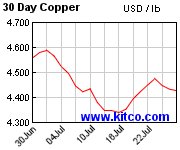
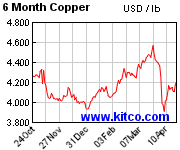
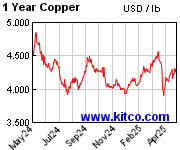
.

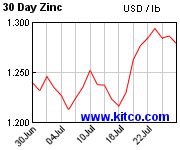
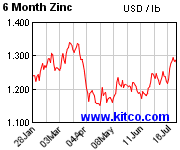
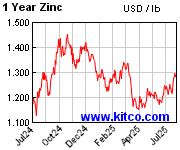
.

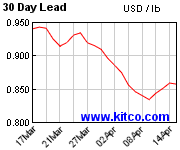
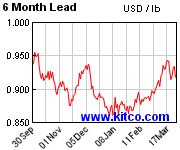
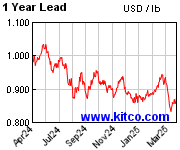
.

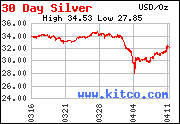
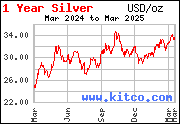
.

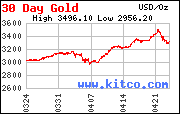
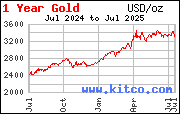
.
.




.




.




.



.



.
- Comodoro
- Mensajes: 980
- Registrado: Jue May 06, 2010 8:24 am
- Ubicación: LIMA
Re: Miercoles 02/11/16 Reporte del empleo privado ADP
18005.46 -31.64 -0.18%
Nasdaq 5135.54 -18.03 -0.35%
S&P 500 2104.28 -7.44 -0.35%
Russell 2000 1170.52 -7.42 -0.63%
Global Dow 2417.11 -14.30 -0.59%
Japan: Nikkei 225 17134.68 -307.72 -1.76%
Stoxx Europe 600 331.92 -3.41 -1.02%
UK: FTSE 100 6858.22 -58.92 -0.85%
CURRENCIES12:02 PM EDT 11/2/2016
LAST(MID) CHANGE
Euro (EUR/USD) 1.1119 0.0063
Yen (USD/JPY) 103.23 -0.92
Pound (GBP/USD) 1.2317 0.0073
Australia $ (AUD/USD) 0.7671 0.0019
Swiss Franc (USD/CHF) 0.9702 -0.0052
WSJ Dollar Index 87.81 -0.40
GOVERNMENT BONDS12:02 PM EDT 11/2/2016
PRICE CHG YIELD
U.S. 10 Year 7/32 1.805
German 10 Year 14/32 0.134
Japan 10 Year 2/32 -0.057
FUTURES11:52 AM EDT 11/2/2016
LAST CHANGE % CHG
Crude Oil 45.33 -1.34 -2.87%
Brent Crude 46.78 -1.36 -2.83%
Gold 1304.8 16.8 1.30%
Silver 18.675 0.257 1.40%
E-mini DJIA 17927 -12 -0.07%
E-mini S&P 500 2099.00 -4.75 -0.23%
Nasdaq 5135.54 -18.03 -0.35%
S&P 500 2104.28 -7.44 -0.35%
Russell 2000 1170.52 -7.42 -0.63%
Global Dow 2417.11 -14.30 -0.59%
Japan: Nikkei 225 17134.68 -307.72 -1.76%
Stoxx Europe 600 331.92 -3.41 -1.02%
UK: FTSE 100 6858.22 -58.92 -0.85%
CURRENCIES12:02 PM EDT 11/2/2016
LAST(MID) CHANGE
Euro (EUR/USD) 1.1119 0.0063
Yen (USD/JPY) 103.23 -0.92
Pound (GBP/USD) 1.2317 0.0073
Australia $ (AUD/USD) 0.7671 0.0019
Swiss Franc (USD/CHF) 0.9702 -0.0052
WSJ Dollar Index 87.81 -0.40
GOVERNMENT BONDS12:02 PM EDT 11/2/2016
PRICE CHG YIELD
U.S. 10 Year 7/32 1.805
German 10 Year 14/32 0.134
Japan 10 Year 2/32 -0.057
FUTURES11:52 AM EDT 11/2/2016
LAST CHANGE % CHG
Crude Oil 45.33 -1.34 -2.87%
Brent Crude 46.78 -1.36 -2.83%
Gold 1304.8 16.8 1.30%
Silver 18.675 0.257 1.40%
E-mini DJIA 17927 -12 -0.07%
E-mini S&P 500 2099.00 -4.75 -0.23%
- admin
- Site Admin
- Mensajes: 165589
- Registrado: Mié Abr 21, 2010 9:02 pm
Re: Miercoles 02/11/16 Reporte del empleo privado ADP
Inventarios de crudo EEUU se disparan en 14 mln de barriles, máximo histórico: EIA
(Reuters) - Los inventarios de petróleo en Estados Unidos subieron muy por encima de lo previsto la semana pasada debido a un recorte de la producción en las refinerías, mientras que las existencias de gasolina y de destilados bajaron, informó el miércoles la gubernamental Administración de Información de Energía (EIA).
Las existencias de crudo aumentaron en 14,42 millones de barriles la semana pasada, frente a las expectativas de analistas de un alza cercana a 1 millón de barriles.
Los inventarios de gasolina retrocedieron en 2,22 millones de barriles, lo que se compara con perspectivas del mercado de un declive de 1,1 millones de barriles.
En tanto, las reservas de destilados, que incluyen combustible para calefacción y diésel, cayeron en 1,83 millones de barriles, frente a previsiones de una baja de 1,90 millones de barriles, dijo la EIA (por su sigla en inglés).
Los futuros del petróleo en Estados Unidos cayeron 3 por ciento a un mínimo desde el 28 de septiembre, tras el reporte de la EIA.
(Reuters) - Los inventarios de petróleo en Estados Unidos subieron muy por encima de lo previsto la semana pasada debido a un recorte de la producción en las refinerías, mientras que las existencias de gasolina y de destilados bajaron, informó el miércoles la gubernamental Administración de Información de Energía (EIA).
Las existencias de crudo aumentaron en 14,42 millones de barriles la semana pasada, frente a las expectativas de analistas de un alza cercana a 1 millón de barriles.
Los inventarios de gasolina retrocedieron en 2,22 millones de barriles, lo que se compara con perspectivas del mercado de un declive de 1,1 millones de barriles.
En tanto, las reservas de destilados, que incluyen combustible para calefacción y diésel, cayeron en 1,83 millones de barriles, frente a previsiones de una baja de 1,90 millones de barriles, dijo la EIA (por su sigla en inglés).
Los futuros del petróleo en Estados Unidos cayeron 3 por ciento a un mínimo desde el 28 de septiembre, tras el reporte de la EIA.
- admin
- Site Admin
- Mensajes: 165589
- Registrado: Mié Abr 21, 2010 9:02 pm
Re: Miercoles 02/11/16 Reporte del empleo privado ADP
Broadcom comprará empresa de redes Brocade por 5.500 mlns dólares
(Reuters) - El fabricante de microprocesadores Broadcom dijo el miércoles que compraría el fabricante de equipos de red Brocade Communications Systems por 5.500 millones de dólares en efectivo, para ampliar sus negocios de red de fibra y almacenamiento de datos. La oferta por acción de 12,75 dólares representa una prima del 46,7 por ciento en comparación con el precio de los títulos de Brocade al cierre del viernes.
Broadcom , con sede en Singapur, antes llamada Avago, es conocida por sus chips de conectividad, mientras que Brocade, con sede en California, ofrece hardware y software de redes y productos de almacenamiento.
(Reuters) - El fabricante de microprocesadores Broadcom dijo el miércoles que compraría el fabricante de equipos de red Brocade Communications Systems por 5.500 millones de dólares en efectivo, para ampliar sus negocios de red de fibra y almacenamiento de datos. La oferta por acción de 12,75 dólares representa una prima del 46,7 por ciento en comparación con el precio de los títulos de Brocade al cierre del viernes.
Broadcom , con sede en Singapur, antes llamada Avago, es conocida por sus chips de conectividad, mientras que Brocade, con sede en California, ofrece hardware y software de redes y productos de almacenamiento.
- admin
- Site Admin
- Mensajes: 165589
- Registrado: Mié Abr 21, 2010 9:02 pm
Re: Miercoles 02/11/16 Reporte del empleo privado ADP
Oil Falls on ‘Most Bearish Report of All Time’
Crude-oil inventory surges the most in 34 years of data, extending selloff
By Alison Sider and Neanda Salvaterra Updated Nov. 2, 2016 11:17 a.m. ET
Oil prices dropped sharply Wednesday as weekly inventory data revealed a much larger-than-expected increase in crude-oil stockpiles.
U.S. crude futures fell $1.58, or 3.39%, to $45.09 a barrel on the New York Mercantile Exchange. Brent, the global benchmark, fell $1.55, or 3.22%, to $46.59 a barrel.
The U.S. Energy Information Administration said crude-oil stockpiles rose by 14.4 million barrels in the week ended Oct. 28—the largest weekly increase in 34 years of data collected by the EIA. Analysts polled by The Wall Street Journal expected a more modest increase of 1 million barrels.
The report broke a string of weekly draws from U.S. crude supplies that had helped bolster the case that supply and demand were coming into balance.
In September, OPEC leaders agreed to curtail the group’s production, possibly by 200,000 to 700,000 barrels a day. ENLARGE
In September, OPEC leaders agreed to curtail the group’s production, possibly by 200,000 to 700,000 barrels a day. Photo: Reuters
“You could easily make the argument it’s the most bearish report of all time. There’s nothing to support the market,” said Bob Yawger, director of the futures division of Mizuho Securities USA. “All the barrels you were wondering what ever happened to them came roaring back in one report.”
Continued output growth from the Organization of the Petroleum Exporting Countries is also weighing on prices, making the prospect of a production cut by the cartel look more remote, said John Kilduff, founding partner of Again Capital.
In September, OPEC leaders met and agreed to curtail the group’s production, possibly by 200,000 to 700,000 barrels a day. The goal was to pump up prices by removing some unwanted barrels from the market.
The move nudged crude prices up initially, but with more countries asking to be exempt from the cut, the market fears even if an agreement is ratified at the Nov. 30 meeting in Vienna, the deal would be weak and overall production would still rise.
Recently, Iraq has been lobbying to get an exemption from the deal because of disruptions from Islamic State insurgency.
OPEC members Iran, Nigeria and Libya have already secured exemptions from the agreement because they have faced petroleum-output disruptions.
International oil prices been falling for three straight sessions, largely weighed by dimming prospects that major oil producers will reach a deal to cut production by month-end as originally planned.
“Prices continue to retrace lower and have wiped most of the OPEC premium,” said Olivier Jakob an analyst from the Switzerland-based consultancy Petromatrix.
“[The oil cartel] has been talking about cutting production but production has been rising the crude oil markets are still under pressure from a lot of physical availability. “ he said.
Gasoline prices were falling on Wednesday morning, down 1.65 cents, or 1.11%, to $1.4676 a gallon. U.S. gas futures had surged a day earlier after an explosion and fire at a pipeline, owned by Colonial Pipeline Co., which delivers about one-third of the gasoline used on the East Coast.
Diesel futures fell 3.98 cents, or 2.62%, to $1.4771 a gallon.
—Jenny W. Hsu contributed to this article
Write to Alison Sider at alison.sider@wsj.com and Neanda Salvaterra at neanda.salvaterra@wsj.com
Crude-oil inventory surges the most in 34 years of data, extending selloff
By Alison Sider and Neanda Salvaterra Updated Nov. 2, 2016 11:17 a.m. ET
Oil prices dropped sharply Wednesday as weekly inventory data revealed a much larger-than-expected increase in crude-oil stockpiles.
U.S. crude futures fell $1.58, or 3.39%, to $45.09 a barrel on the New York Mercantile Exchange. Brent, the global benchmark, fell $1.55, or 3.22%, to $46.59 a barrel.
The U.S. Energy Information Administration said crude-oil stockpiles rose by 14.4 million barrels in the week ended Oct. 28—the largest weekly increase in 34 years of data collected by the EIA. Analysts polled by The Wall Street Journal expected a more modest increase of 1 million barrels.
The report broke a string of weekly draws from U.S. crude supplies that had helped bolster the case that supply and demand were coming into balance.
In September, OPEC leaders agreed to curtail the group’s production, possibly by 200,000 to 700,000 barrels a day. ENLARGE
In September, OPEC leaders agreed to curtail the group’s production, possibly by 200,000 to 700,000 barrels a day. Photo: Reuters
“You could easily make the argument it’s the most bearish report of all time. There’s nothing to support the market,” said Bob Yawger, director of the futures division of Mizuho Securities USA. “All the barrels you were wondering what ever happened to them came roaring back in one report.”
Continued output growth from the Organization of the Petroleum Exporting Countries is also weighing on prices, making the prospect of a production cut by the cartel look more remote, said John Kilduff, founding partner of Again Capital.
In September, OPEC leaders met and agreed to curtail the group’s production, possibly by 200,000 to 700,000 barrels a day. The goal was to pump up prices by removing some unwanted barrels from the market.
The move nudged crude prices up initially, but with more countries asking to be exempt from the cut, the market fears even if an agreement is ratified at the Nov. 30 meeting in Vienna, the deal would be weak and overall production would still rise.
Recently, Iraq has been lobbying to get an exemption from the deal because of disruptions from Islamic State insurgency.
OPEC members Iran, Nigeria and Libya have already secured exemptions from the agreement because they have faced petroleum-output disruptions.
International oil prices been falling for three straight sessions, largely weighed by dimming prospects that major oil producers will reach a deal to cut production by month-end as originally planned.
“Prices continue to retrace lower and have wiped most of the OPEC premium,” said Olivier Jakob an analyst from the Switzerland-based consultancy Petromatrix.
“[The oil cartel] has been talking about cutting production but production has been rising the crude oil markets are still under pressure from a lot of physical availability. “ he said.
Gasoline prices were falling on Wednesday morning, down 1.65 cents, or 1.11%, to $1.4676 a gallon. U.S. gas futures had surged a day earlier after an explosion and fire at a pipeline, owned by Colonial Pipeline Co., which delivers about one-third of the gasoline used on the East Coast.
Diesel futures fell 3.98 cents, or 2.62%, to $1.4771 a gallon.
—Jenny W. Hsu contributed to this article
Write to Alison Sider at alison.sider@wsj.com and Neanda Salvaterra at neanda.salvaterra@wsj.com
- admin
- Site Admin
- Mensajes: 165589
- Registrado: Mié Abr 21, 2010 9:02 pm
35 mensajes
• Página 2 de 3 • 1, 2, 3
¿Quién está conectado?
Usuarios navegando por este Foro: No hay usuarios registrados visitando el Foro y 25 invitados
